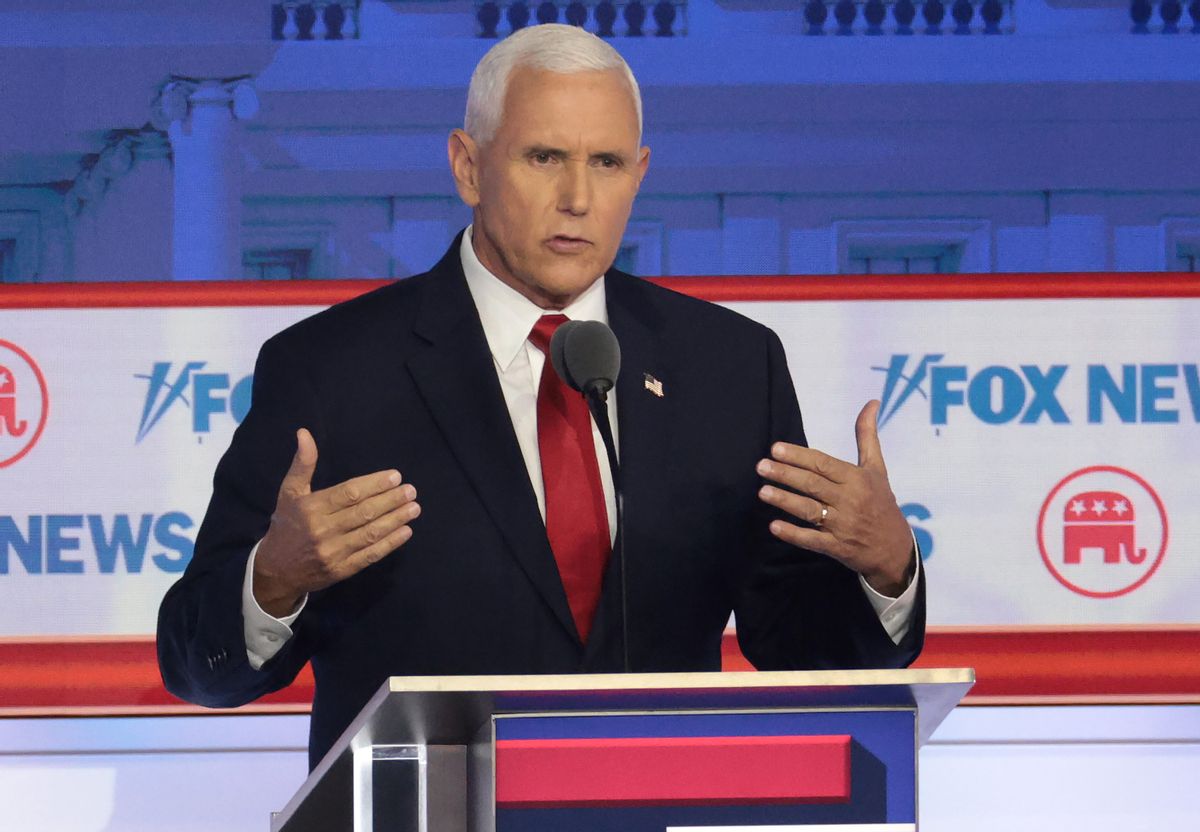- Cautiously considering the new book by Marcelo Gleiser, which seeks meaning where I think none exists;
- Items about Mike Pence’s Biblical cherry-picking, how Tennessee is the “worst state for voting rights,” and two takes on Vivek Ramaswamy: “spouting nonsense” and “another crank”.
Here’s the other nonfiction book I alluded to yesterday. This book just came out today; my copy arrived from Amazon this afternoon.
The book is by Marcelo Gleiser and is titled The Dawn of a Mindful Universe: A Manifesto for Humanity’s Future. I’m cautious but curious about this book. I’ve only read short pieces by Gleisner, lately on the Big Think site, and while he’s a physicist and astronomer, he strikes me as a bit soft on the need to assign [human-centered] “meaning” on the universe at large, and to assign faith-based motivations to science. Has he won the Templeton Prize yet? He sounds like a perfect candidate. (Also, it’s published by HarperOne, originally founded as a “New Age” publisher…) Still I’ll give his book a try. The piece at hand is an excerpt from the new book, at Big Think.

Big Think, Marcelo Gleiser, 27 Aug 2023: “Biocentrism”: A scientific answer to the meaning of life, subtitled “Life in the supremely vast cosmos is incredibly rare. We need a new vision for our living planet and for ourselves.”
Key Takeaway
• Humans are a paradox — half beasts, half gods, capable of the most beautiful creations and the most atrocious crimes. • Our success has lulled us into a false sense of confidence, leading us to believe that we are above Nature. • A new biocentric vision treats all life as sacred. We matter because we are the only life-form that knows what it means to matter.
First para of the excerpt:
A Universe without life is a dead Universe. A Universe without minds has no memory. A Universe without memory has no history. The dawn of humanity marked the dawn of a mindful Universe, a Universe that after 13.8 billion years of quiet expansion found a voice to tell its story. Before life existed, the Universe was confined to physics and chemistry, stars forging chemical elements within their entrails and spreading them across space. There was no purpose to any of this, no grand plan of Creation. Through the unfolding of time, matter interacted with itself, as gravity sculpted galaxies and their stars. The emergence of life on Earth changed everything. Living matter doesn’t simply undergo passive transformations. Life is “animated” matter, matter with purpose, the purpose of surviving. Ecotheologian Thomas Berry wrote, “The term animal will forever indicate an ensouled being.” Life is a blending of elements that manifests as purpose. This sense of purpose, this autonomous drive to survive, is what defines life at its most general.
My reaction: no no no. Life does not have a “purpose” to survive (that’s teleological thinking); life is what happens to survive. So many writers do not understand this, or reject it. Get over it. That’s how reality works.
And in our world, the mountains, rivers, oceans, and air sustain every living being. Life elsewhere may be very different from life here. But if it exists, it must share the same urge to survive, to perpetuate itself in deep communion with its environment. The alternative, of course, is extinction. When life exists, it will struggle to remain existing. Life is matter with intentionality.
No no no. Life is what happens to survive; what survives is the life that has, not a conscious “urge,” but a propensity of doing things that enable its survival. There is nothing conscious about it. Study the vast realms of life on earth, of which some species have survived for hundreds of millions of years, all without “intentionality,” to understand this. Gleiser is committing the standard pathetic fallacy, of attributing human motivations onto everything else on Earth.
Moving past this, Gleiser makes some good points about the current status of humanity.
Our success has lulled us into a false sense of confidence, leading us to believe that we are above Nature. But our planet, vast as it is, is limited, and it is responding to our voracity in ways that might destroy us or, at the very least, compromise the future of our species and countless others. We coevolve with Nature and can’t extricate ourselves from its dynamics. To believe we can is our biggest mistake. Still, this is what we have attempted to do, creating a chasm separating us from the rest of Nature. We built huge cities and factories and country-sized mechanized agricultural monocultures, pushing wilderness to the unreachable fringes of the land. We consumed the planet’s entrails, the oil and gas and coal, to feed our industrial growth. We lost touch with our evolutionary origins, with our roots in the wild, and we have forgotten who we are and where we came from. We have desecrated the land that sustains us, treating the world as our property.
But then he goes on. The excerpt ends:
There is no life without Earth, but there is Earth without life. To transform Earth into one of our barren solar system neighbors would be the greatest crime humankind could commit against itself, against all life, against the Cosmos. Biocentrism is a vision for a morally aware humanity that celebrates and protects all forms of life as the only way to secure a healthy future for our project of civilization. It reaches beyond pre-Copernican human exceptionalism (we are the center of all Creation) and Copernican nihilism (we are nothing in the cosmic vastness), given that it weaves humankind into the web of life, the irreducible wholeness that enshrines the planet. Biocentrism presents humankind with a collective purpose, since, barring Earth experiencing a cataclysmic collision with a large asteroid, we alone have the power to preserve or destroy the biosphere. The alternative — inaction and neglect — will bring great suffering to all sectors of the population, especially — but certainly not exclusively — to those of weaker economic means and to our children and subsequent generations. The choice should be obvious.
All of this strikes me as wishful thinking and a kind humanistic bias. There’s no objective reason why the entire universe *couldn’t* exist without humanity, and it might happen sooner or later if our species kills itself off via climate change or nuclear war. If a tree falls in a forest and no one hears it, does it make a sound? Yes. If the universe continues to exist — as it did for billions of years before humanity emerged — and no one is alive to witness, does it continue to exist? Yes. Meaning of the universe is only what humans assign to it.
Still, I will read, or at least inspectionally read, the book.
\\\
In contrast, or maybe not. Again, this is about finding meaning where nothing is there.

Salon, Brandon R. Grafius, 27 Aug 2023: Mike Pence and “The Book”: A master class in disingenuous biblical interpretation, subtitled “The former veep’s anti-abortion biblical quotation sounded deeply earnest — but it was a stitched-together fake”
I thinks this reflects the extremely naive, and a-historical, view by believers that the Bible really is the “word of God” or at least a consistent narrative without any contradictions. Which of course it is nothing but.
“After I gave my life to Jesus Christ as my Lord and Savior, I opened up the Book,” Pence began — you could hear the capitalization in the way he intoned these words — where he reported finding the foundational text for his staunch opposition to abortion. “And I read,” he continued, “‘Before I formed you in the womb, I knew you, and see, I set before you life and death, blessings and curses. Now choose life.'” (Those last two words should probably be capitalized as well, lest viewers miss that they’ve seen this phrase on a bumper sticker.)
“And I knew this cause had to be my cause,” Pence concluded. It was a nice anecdote, tightly packaged to explain to faithful Christians where his pro-life beliefs come from, and to foreclose any argument against this political position.
But to get to this point, the former veep had to make some extremely dubious leaps in interpretation — leaps that probably aren’t obvious to most observers. This short paragraph of Pence’s offered a master class in evangelical biblical interpretation, with all the sloppy readings and false claims to authority that this practice entails.
The first thing to note is that Pence takes two Bible verses, from different books, with many pages and likely several centuries between them, and stitches them together into one Frankenstein quotation. Pence’s interpolated “and see” covers up a major snip, which he uses to connect Jeremiah 1:5 to Deuteronomy 30:19. The first passage is God telling Jeremiah that he will be a prophet to the people of Jerusalem, and letting him know all the plans that God has for his work. The second, occurring hundreds of years earlier, is from the final speech of Moses, as the people of Israel are about to enter into the promised land of Canaan. In this context, choosing life clearly means following all of God’s commandments; death is equated with idolatry.
Believers do this all the time; this was today’s handy example. The article goes on with discussion of hermeneutics and proof texting:
In the study of hermeneutics, this is a technique known as proof texting: starting with a particular belief and working backward to find a biblical passage that seems to support this idea. When you don’t have to concern yourself with context, it’s pretty easy to find a biblical statement to support just about any position you like.
This is the well-known pattern of Biblical cherry-picking.
\\\
Headlines.

Slate, 28 Aug 2023: The Worst State in the Country for Voting Rights Just Got Even Worse
That would be Tennessee.
\

Salon, Heather Digby Parton, 28 Aug 2023: Rise of the Republican edgelord: If Trump is the GOP’s present, Vivek Ramaswamy is its future, subtitled “Smiling, spouting nonsense and owning the libs: This guy, not Ron DeSantis, is where the GOP is going next”
“Spouting nonsense”
\

Paul Krugman, NYT, 28 Aug 2023: The Paranoid Style in American Plutocrats
This is another piece by Krugman about how the wealthy Silicon Valley bros think their success gives them license to claim to know everything, and in this case, explains their appeal to cryptocurrency. Key passage about Ramaswamy:
If you regularly follow debates about public policy, especially those involving wealthy tech bros, it’s obvious that there’s a strong correlation among the three Cs: climate denial, Covid vaccine denial and cryptocurrency cultism.
I’ve written about some of these things before, in the context of Silicon Valley’s enthusiasm for Robert F. Kennedy Jr. But in the light of Hotez’s puzzlement — and also the rise of Vivek Ramaswamy, another crank, who won’t get the G.O.P. nomination but could conceivably become Donald Trump’s running mate — I want to say more about what these various forms of crankdom have in common and why they appeal to so many wealthy men.
“Another crank.”
\
Which is why he is rising in the polls of Republican voters.






